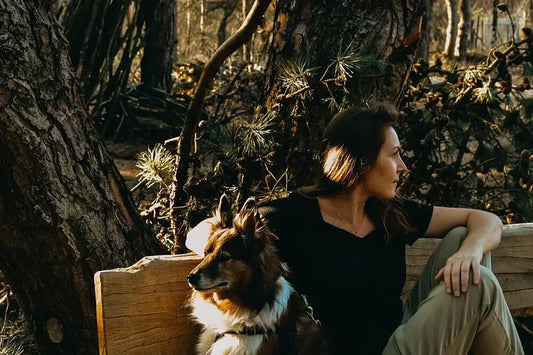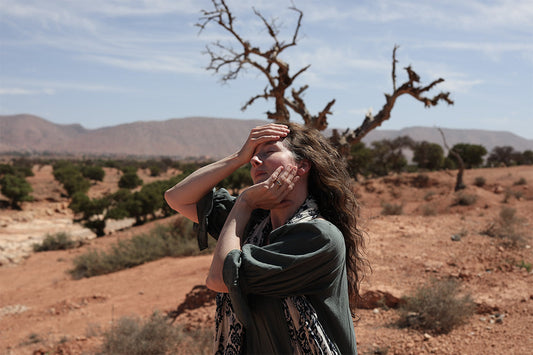Our summer journey continues.
This week our regenerative journey takes us to Morning Myst Botanics in Northport, Washington – the farm of Jud and Anne Carlton. We’ll be hosting a dozen retailers and an equal number of stewards and advocates from California and Oregon, as well as Morocco and Ghana.
Why are we doing this and why do we call them stewards?
I believe that those who steward the land connect us to our inner deeper truer self. Connecting in this way gives meaning to what we do. Our stewards take care of the land, the soil. Simply put they take care. With their hands and hearts, they touch plants. Deeply, profoundly. They care of the plant beings – the devas. In the ancient Vedic texts of India, devas are supernatural beings. Pronounced ‘day-vas’, they are alive with life-force. In this way stewards bring forth plants alive with life energy and healing force.
Our time together will be spent harvesting and distilling aromatic plants such as rose geranium, tulsi, lemon thyme. It’ll be less about what we know and more about how we listen. Surrounded by wild wisdom, we’ll observe in silence. We’ll seek the essence of why we’re here. Opening to a constellation of impressions with each plant drawing on its own light, we’ll be guided by the knowledge that healing is not a transaction, rather it is relationship.
Mary Oliver, in her essay “Upstream,” wrote that “Attention is the beginning of devotion.” To pay attention is to engage with the sacred. Is it possible that when a company pays attention that it enlivens the sacred? If so, is that restricted to its products, or does the sacred expand into the world with everyone that it connects with? Customers, vendors, stewards, affiliates, fellow businesspeople and so on. I like to think so – and that is why we are doing this and why we do what we do.
- David Gordon Co-Founder CEO evanhealy
Read more about some of our friends and stewards.
 Ann Armbrecht, founder of SHI.
Ann Armbrecht, founder of SHI.
Ann Armbrecht
Founder & Director, Sustainable Herbs Initiative
In a recent blog Ann writes that, My theory of change…is speaking what is real and true becomes a campfire around which others gather. And that the fire weaves webs of light that nourishes the seeds planted in our gatherings...I didn’t know how those seeds would grow or what exactly would unfold, but just that the seeds, the web of relationships created, and the structure to hold them were key. Seven years later, I realize that this is exactly what the Sustainable Herbs Initiative is now doing. People come to this work because they envision a better path for producing herbal products made with plants sourced from around the world.
 Simo, Mohamed and David.
Simo, Mohamed and David.
Mohamed El Karz (Simo)
Founder, Argand’Or and Royal Argan
In the early 2000’s Mohamed El Karz, a Moroccan-born German-based environmental engineer, began a journey to share the argan tradition of his homeland with the world. He formed deeply personal relationships with women’s co-operatives finding markets for their traditional approach to creating argan oil. Things started off well. Yet, over the past decade, with the sudden popularity of argan, commercial interests quickly seized the available crop paying a premium over what the co-operatives could afford exacerbating the already limited supply. In 2016, we sponsored the planting of 400 argan saplings. Then a few years ago, Simo worked with the government of Morocco to plant 48,000 argan trees. Now he has arranged for the planting of 1,000,000 argan trees. The fruit of these trees will be specifically targeted to the members of various co-operatives.
Here’s how it works: Individuals own tracts of land, sometimes a few acres, sometimes more. The government plants the trees. The individuals, who own the land and are often members of a co-operative, have the rights to harvest. Reforestation increases soil fertility. The tree’s deep roots help to stabilize the soil and prevent wind erosion. Carbon sequestration improves the air. Dignity of income grows so that the women of the co-operatives are able to purchase property. The argan forest is a UNESCO protected biosphere meaning that the trees can’t be cut without permission. All of this restores sovereignty of their ancestral heritage.
 Jeff and Elise, with David.
Jeff and Elise, with David.
Elise & Jeff Higley
Founders, Oshala Farm
Elise and Jeff are co-owners of Oshala Farm based in Jackson County, southwestern Oregon. Our connection with them last year was auspiciously timed as they are had just become certified as Regenerative Organic (ROC). Having spent time on their close to 300-acre Garden of Eden and having had the honor of meeting their farm workers, we have been swept up in their flow of love – for the land, their workers. This year Oshala will grow 21 herbs for us that enliven our cleansers, moisturizers and balms. Elise the enchantress, mother earth herself, led local farmers – and prevailed – in a battle against Syngenta and Monsanto’s challenge to a GMO crop ban in their home county.
 Our colleague Andy with Julius holding a shea sapling during a February 2025 visit to Ghana.
Our colleague Andy with Julius holding a shea sapling during a February 2025 visit to Ghana.
Julius Awaregya
Founder, ORGIIS
Julius was raised in a small village in the Upper East Region Ghana. Upon graduating university, he returned to his village. He started with a conservation project and then added a supply-chain business to support the community. Fifty percent of revenue from the business goes back into the community to support conservation. His direct leadership has mobilized the community. Women are organized into groups. These groups are registered as cooperatives and cooperative unions as apex bodies. The zonal cooperative unions form community credit unions to support members to manage savings and provide loans, which are invested in education for their children. His initiatives are responsible for planting trees for the community as well as for individual households providing income and food respectively. Moreover, the community is being trained in agricultural practices including soil health to further healthy productivity. Julius created the Organization for Indigenous Initiatives and Sustainability (ORGIIS) to trade in baobab and shea butter. Both are certified according to European (EOS), US (NOP), Fair Wild and Regenerative Agriculture standards. At evanhealy we purchase our shea butter Regenified Certified from ORGIIS. ORGIIS contributes to the Africa Union’s Great Green Wall Initiative fighting desertification, climate change and creating jobs for people in Africa to reduce dangerous migration to Europe.
 The olive grove with Patrick and Claire.
The olive grove with Patrick and Claire.
Patrick Martin
Owner, Frantoio Grove
Patrick Martin is a sixth generation farmer and owner of Frantoio Grove, where he cultivates the world’s first Regenerative Organic Certified (ROC) olive grove. When Patrick first took over the farm in 2020, it was already certified organic. While a giant leap from conventional farming, it still followed a recipe requiring an array of costly inputs to fertilize and protect the grove. Faced with ‘olive leaf leprosy,’ Patrick weighed his options and ultimately decided to solve the problem literally from the ground up. His trees now drink compost tea and he’s replaced his farm machinery with a team of lawn mowing, hoof-aerating and ground-fertilizing goats guarded by an impressive llama named Kronk.
 This past August our team participated in the annual distillation of hydrosols at Morning Myst Botanics with (below) owners Jud and Anne Carleton and their son Gideon, our partners for the past 15 years.
This past August our team participated in the annual distillation of hydrosols at Morning Myst Botanics with (below) owners Jud and Anne Carleton and their son Gideon, our partners for the past 15 years.
Jud & Anne Carlton
Owners, Morning Myst Botanics
Nothing could say it better than Jud’s reflection on what they do: “Farming allows us to look at something bigger than ourselves. There's a regularness to it; a life of its own. As you partner with nature, there's a completeness. It's so important that we appreciate the ground that we have. It's from where we came. It's what helped create culture and society and ultimately cultivated our human relationship with the rest of the natural world. Building soil has helped us revive a community of farmers and distillers. It’s gratifying to see how our children have grown up and followed in our footsteps, much like I took inspiration from my father and grandfather.” ~ Jud


 The evanhealy team with stewards and botanical advocates
The evanhealy team with stewards and botanical advocates

